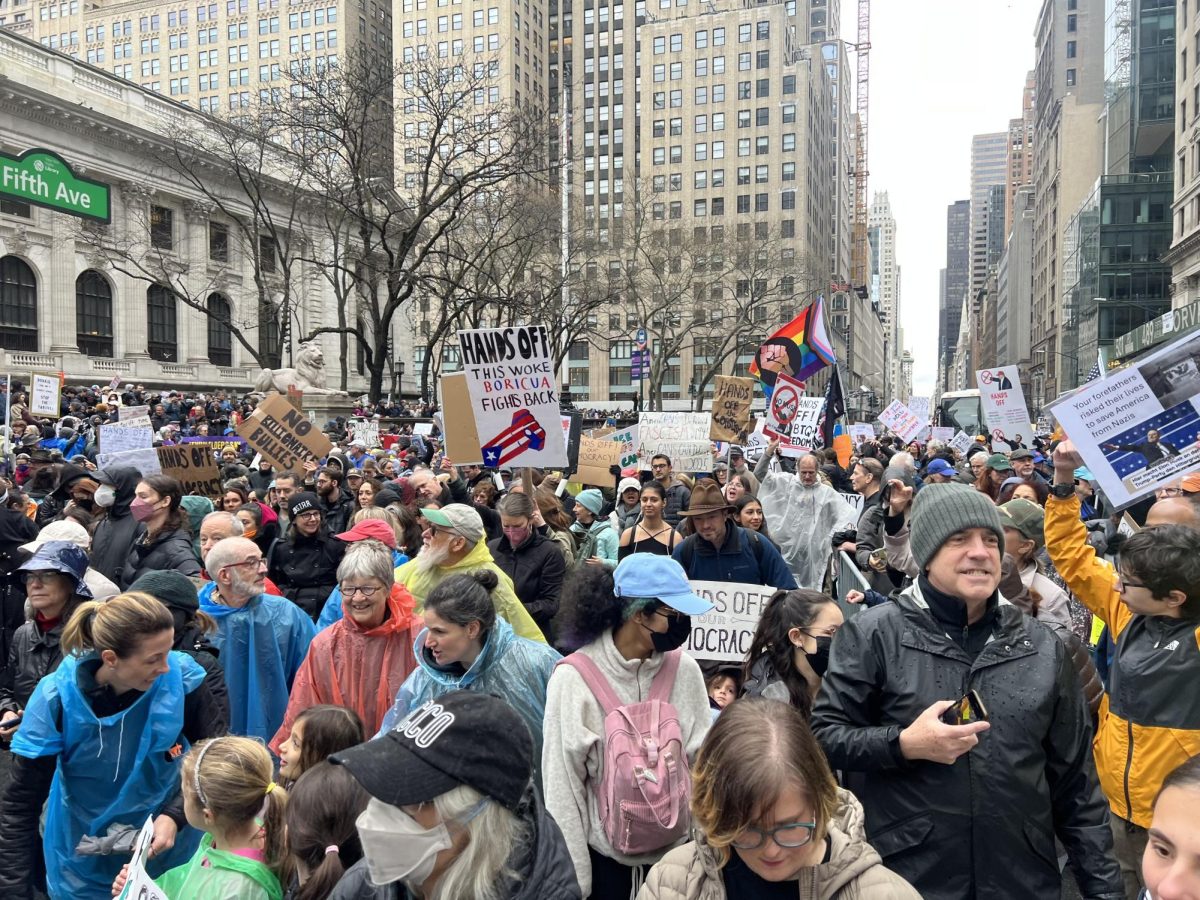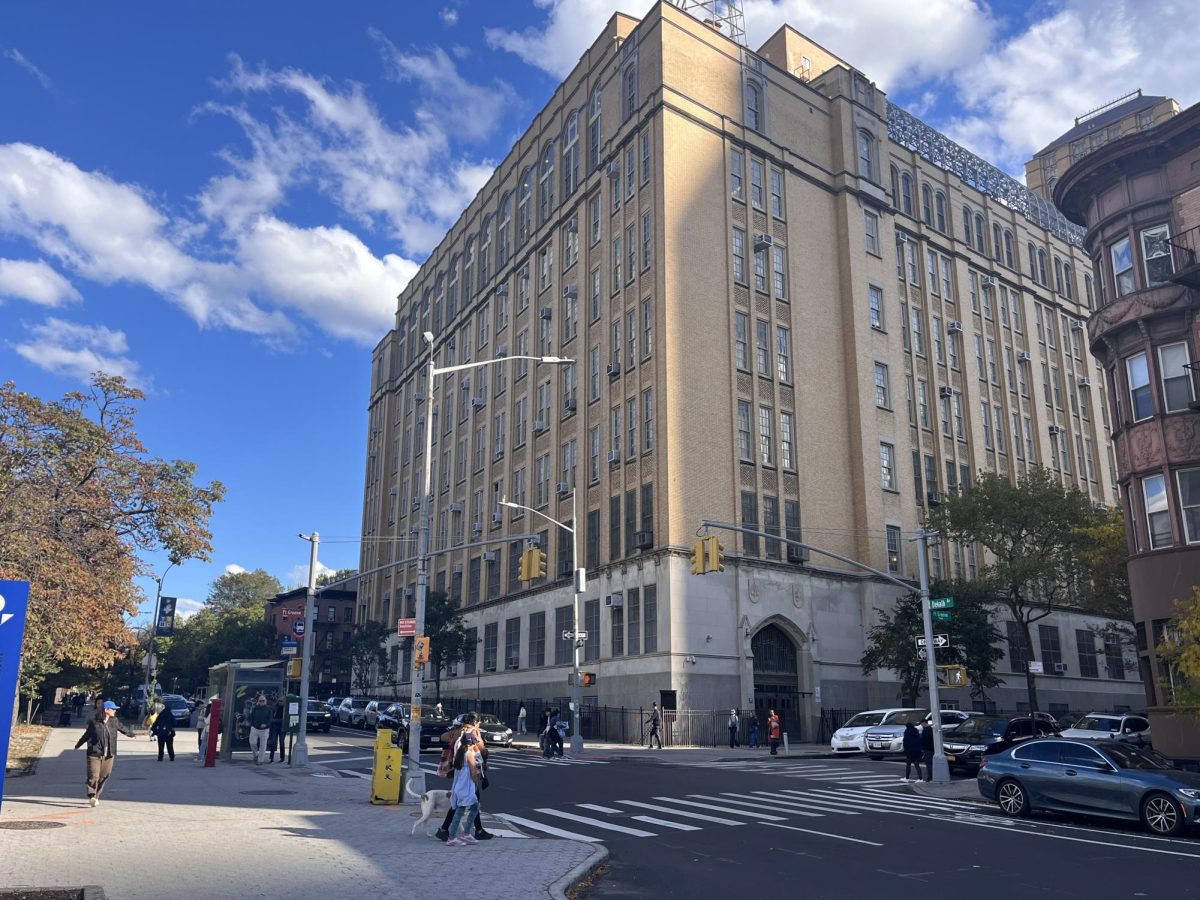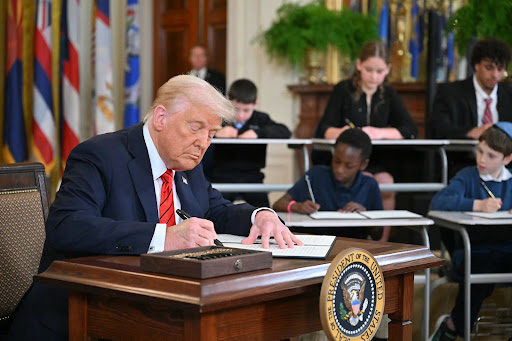Since Trump’s inauguration in January, the world of higher education has faced a radical shift in federal policies, impacting colleges and universities and what students think about them.
The new administration’s assault on Diversity, Equity, and Inclusion (DEI) initiatives has sought to censor discussion of controversial topics such as racism and gender identity, just as it threatens federal funding for schools it deems antisemitic for tolerating pro-Palestine activism. These moves have sewn widespread chaos both on and off of college campuses, and along with the nationwide rise of abortion bans, has many high school seniors worried about which state they should choose to attend school.
In a recent Survey Instagram poll, nearly a third of responding Tech seniors reported that the 2024 presidential election affected their college application process.
“One of my big schools was [University of] Miami,” said Social Science Research major Rhys Barbaro (‘25). “I ended up getting deferred recently, but I think even if I got in, it would be very hard for me to be in such a red state in the South, just because of my own political views.”
Software Engineering major Justin Gaston (‘25) felt similarly during the college process.
“I kind of removed any schools that were in these more Republican-controlled states,” he said.
His decision to avoid red states crossed major universities, including Purdue and Georgia Tech, off his list.
Seniors who chose to steer clear of red states did it for more than their political views.
“Censorship is a big thing for me,” said Barbaro. “I think it’s [going to] be hard, especially in the South, for professors to keep being authentic.”
Censorship is a growing issue in college classrooms across the country. More than a third of faculty in higher education reported that they feel less academic freedom and freedom of speech while teaching than they did six to seven years ago, or since starting at a new institution inside that timeframe. Since 2021, schools in 16 Republican-controlled states have banned the teaching of a variety of critical views on the history of race, sexuality, and other “divisive” topics.
Another consideration affecting seniors’ college decisions is abortion laws. Since the Supreme Court’s decision to overturn Roe v. Wade in 2022, 12 states have banned abortion outright, 29 have imposed narrow restrictions based on gestational duration, and almost half of American states enforce some form or limitation.
“I don’t think I would go [to university] in a state where [abortion] was completely banned,” said Barbaro.
Students are also reconsidering their college options for more than social issues. Trump’s recent order to dismantle, and perhaps eliminate, the Department of Education may affect federal financial aid, leaving some students to rethink what schools they could afford without it.
“[The dismantling of the DOE] made me just think about my financial situation, and if maybe I should be looking into schools that might offer me more scholarship money, or are just cheaper in general,” said Physics major Sashi Atkinson Osorio (‘25).
Historically, the DOE in Washington, D.C. oversees federal financial support for as many as 10 million students, but according to Trump’s order, that responsibility would be transferred to the Treasury Department. Although Trump has promised that the shift would not affect financial aid, it remains unclear whether the money will be available once the department is shut down.
Tech seniors also take a long view of how Trump’s policies will impact higher education.
“With how Trump and JD Vance have said professors are the enemy, and always talking about how college-educated liberals are the issue in the country, I think college is going to become disincentivized,” Gaston said.
In addition to this rhetoric from Trump and Vance, Americans may also opt out of university due to financial factors. Young adults across the nation have been facing increasingly large student debt and suspicion around job offers. This has led to a portion of Americans choosing to work after high school instead of attaining higher education.
People who are dissuaded from attending university end up with less education which, according to a University of Kansas study, makes them more susceptible to misinformation and disinformation (both of which are growing issues in current American politics due to social media companies promoting free speech and allowing for the swift spread of posts).
“With Trump saying all these things, I think in the coming years we’re going to have a large amount of uneducated people left in the world believing everything they hear,” Gaston concluded.









































